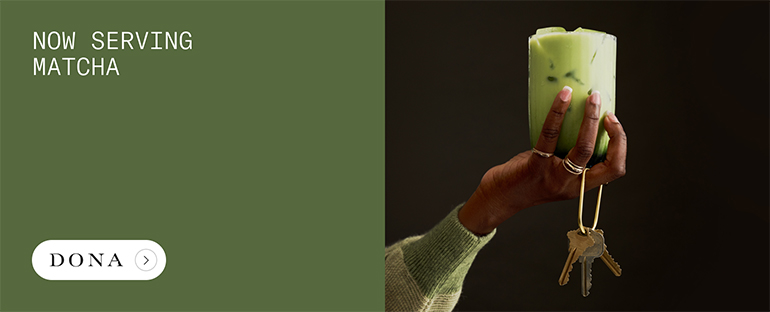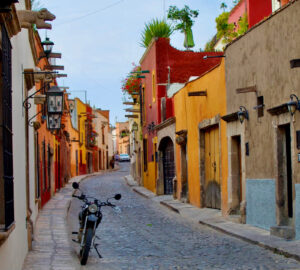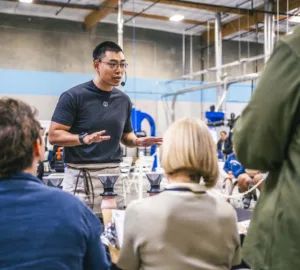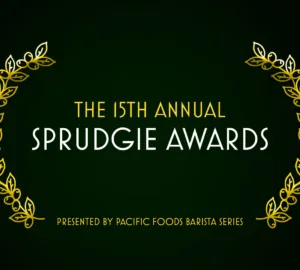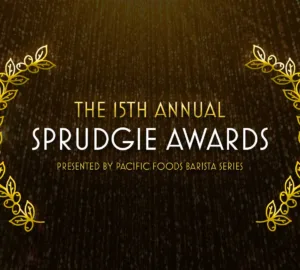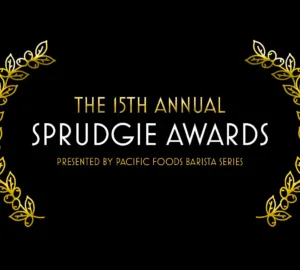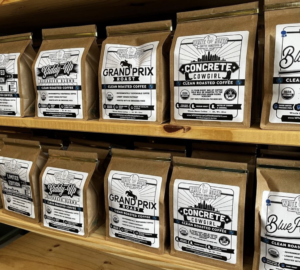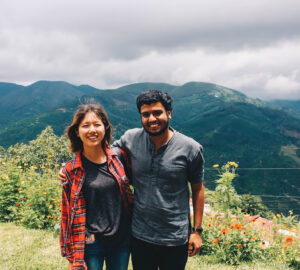Edo Lopez, the Tijuana-born Japanese cuisine king of Mexico City, has this one leafy block in Cuauhtémoc on lock. There’s his famed ramen spot, Rokai Ramen; his invite-only vinyl and cocktail den, Tokyo Music Bar; and his showstopper of a standing bar, Le Tachinomi Desu. It’s small as a shoebox, but it’s a jewel in the crown of Lopez’s expansive Japanese hospitality empire.
Le Tachinomi Desu is as special as it is tiny—the scale promotes exclusivity, as a doorman can only let maybe 20 or so bodies in at once. I’ll say that it’s a lovely drop-in for a pre-dinner drink or a nightcap, but only to promote turnover, so that more people can experience it without waiting outside for space to open up. Once you’re in, it’s hard to break away. On first glance, the sleek, dim environs seem like the perfect palate cleanser from the so-muchness of Mexico City. But really, Le Tachinomi Desu offers a different kind of sensory overload. It starts with the blank slate of Japanese minimalism, plies you with an exciting list of natural wine, sake, and Japanese whiskey, and you end up with a different, delightful angle of sensory abundance.
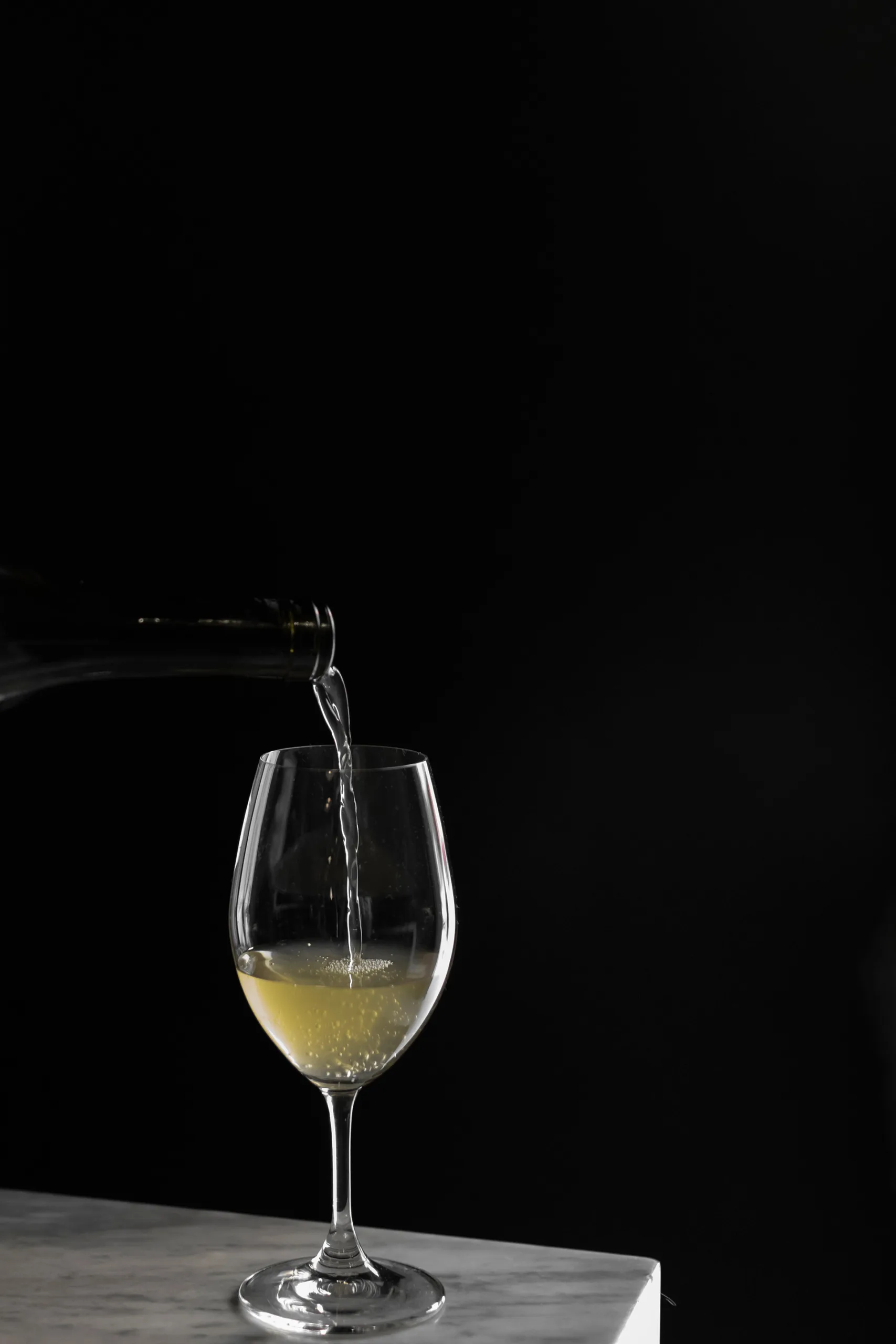
There’s beautiful food, too. Edo’s kitchen fuses Japanese and Mexican gestures into gorgeous small plates, like yaki onigiri fried rice balls with roe, or tuna tartare tostadas which rival the famed ones at Contramar. But also, it’s not so serious—Tuesday is Hot Dog day, but of course, it’s a very chic hot dog showered with shredded nori. Le Tachinomi Desu is one of the biggest thrills I’ve had as a tourist drinking wine; our server caught our interest and shuttled us surprises all night, pouring us a cherry blossom pink Japanese pet nat, or the El Garambullo Syrah/Cab Franc/Cab Sauv made in Central Mexico by Estonian expats. It’s not just a pretty bar, or cool list. It’s an entire experience, one that was memorable and beautiful and absolutely indulgent.
After my visit, I spoke with Lopez about the vision behind this gem, his attraction to Japanese cuisine and drinking culture, and what the natural wine world is like in Mexico.
Hello Edo! What is your guiding philosophy behind Le Tachinomi Desu? What role does it play in your restaurant group?
Tachinomi is a warehouse of the restaurants nearby. Besides the walk-in fridge in the warehouse, we decided to build a small counter for our group to work as a test kitchen. During my travels to Europe and Japan, I noticed all the love for natural wines in all the different varieties and I started to buy wines in those trips and bring it back home, and I started open these bottles at Tachinomi. We prepared finger food using the test kitchen, and some friends from industry started to come visit, and they really loved the vibe of the place. So we decided to open the bar for our friends by reservations, by email only. At the beginning, it did not have a permit to operate. So it was just a bar for friends. After that, we applied for the permit, so we opened to the public.
“Tachinomi” means “standing bar” in Japanese. I liked the concept of it, [and I] added “Le” because I wanted to add the french concept in that. “Desu” means “it is” in Japanese, so it literally means, “It is a standing bar.” When people ask about the name of the bar, it simply means, a standing bar.
How did your relationship to Japanese food and drinking begin?
By trying to discover my roots, because I was born in Tijuana, but my grandfather was from a Japanese family. Also, my brother lives in Japan and I have a Japanese family. So maybe my blood calls.
How would you describe the natural wine culture in CDMX?
It’s very young culture, but it’s growing fast and people are open to trying everything. It is unlucky for us that it’s very difficult to have options here.
Lately, Jair Téllez from Bichi influenced us because there are a lot of people who were inspired to get out there and look for wines. There’s some new people in town that are doing things very well like Alonso Maldonal and Gaetan Rousset just to name a few. Jair Téllez was my mentor in this adventure.
Are there any particular advantages or challenges to having a natural wine bar in Mexico?
Having a lot of fun! Knowing so [many] amazing people from around the world.
In the beginning, it was a challenge for us because people didn’t understand much about [the] wines, but we got so much support from the people who knew [the] wines. Like people from industry and connoisseurs.
What is your approach to the food program?
We have tapas-style dishes from all over the world with [a] Japanese touch. We admire that in Japan they have a lot of international influence in their dishes. For example, croquette: it was brought by [the] Portuguese from many years ago, and it has been acquired and became very famous in Japan. Now it is part of their typical dish.
What connections do you make between Japanese food and natural wine?
Japanese food is very subtle, even though sometimes it can be very greasy, or light. So I think natural wines are a perfect match with [the] variety of Japanese influenced dishes. For example, om-rice with sparkling Pet Nat, or karaage with champagne. There’s a sushi place that I really love in Japan, it’s called Sushi Mitani. There is [a] wine pairing with natural-influenced wine; they are very special wines. It’s a perfect pairing with the sushi. There is also another place that they do natural wine pairing with oden in Kyoto.
What is exciting for you right now (anything, whether it’s a producer, a vintage, a trend, something that’s going on in your restaurants)?
We’ve been researching and importing Japanese wines to Mexico, and mostly sparkling because we think it goes really well with Mexican food or oily food. Because of this, we plan to open a fried chicken place soon so we can serve sparkling.
Thank you Edo!
Le Tachinomi Desu is located at Rio Panuco 132, Cuauhtémoc, Mexico City. Follow them on Instagram.
Dylan Tupper Rupert is a freelance journalist based in Los Angeles. Her work has appeared in Rookie, the Guardian, MTV News, Billboard, and the Pitchfork Review.











